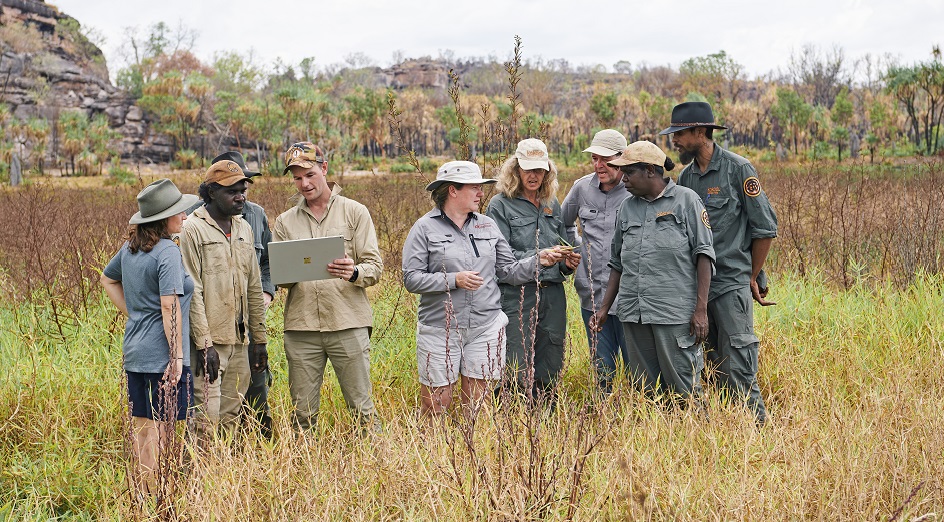An Indigenous-led science project solving complex environmental management problems in the Northern Territory’s Kakadu National Park has been named a finalist in the 2020 Australian Museum Eureka Prizes.
The Indigenous-led science to monitor Kakadu project is unique, mixing responsible artificial intelligence and modern science with traditional knowledge to solve complex environmental management problems, and care for animal species and habitats.
The partnership is part of the National Environmental Science Program (NESP)’s Northern Australia Environmental Resources Hub. It brings together Kakadu Traditional Owners and Indigenous rangers, CSIRO, Microsoft, Parks Australia, The University of Western Australia (UWA), and Charles Darwin University (CDU).

Traditional Owners and rangers in the national park drive the collection of information from drones, motion-sensor cameras and on-ground monitoring to assess the health of significant species and habitats and inform adaptive approaches to caring for Country.
The NESP Kakadu team was nominated for the Department of Industry, Science, Energy and Resources Eureka Prize for STEM Inclusion, said Project Leader Dr Cathy Robinson, from Australia’s national science agency, CSIRO.
“Through their project, Indigenous custodians and scientists have worked together to develop new ways to apply science and Indigenous knowledge to managing Kakadu National Park,” she said.
“Bininj/Mungguy Traditional Owners and rangers are now using technologies that include drones, ethical artificial intelligence, time-lapse cameras and participatory videos to adaptively co-manage important landscapes within this World Heritage-listed area.”
Professor Michael Douglas, from UWA’s School of Biological Sciences and NESP Northern Australia Environmental Resources Hub Leader, said Indigenous people safeguarded 80 per cent of the world’s remaining biodiversity, which faced rapidly growing threats.
“These kinds of partnerships hold great potential to inspire other Indigenous groups to find appropriate ways to use technology to support their environmental management,” he said. “They also demonstrate how weaving together Indigenous knowledge and western science can produce practical solutions for conserving precious ecosystems.”
In an early example of the success of the team’s innovative approach, they used data collected via their high-tech monitoring to tailor management of para grass, an invasive weed that had been choking Ramsar-listed floodplains and reducing habitat for species such as magpie geese. Within just nine months, the count of magpie geese in one wetland jumped from 50 to 1,800.
The winners of the Australian Museum Eureka Prizes will be announced on the evening (AEST) of Tuesday 24 November 2020 during a live, digital event which is open to everyone and is free to attend. Registration will soon be available via australian.museum/eureka.
Media references
Professor Michael Douglas (UWA School of Biological Sciences, Hub Leader, NESP Northern Australia Environmental Resources Hub, and Kakadu Board Member), 0408 467 000
Dr Cathy Robinson (Project Leader and Principal Research Scientist, CSIRO), 0437 170 024
Jess Reid (UWA Media and PR Advisor), 08 6488 6876
